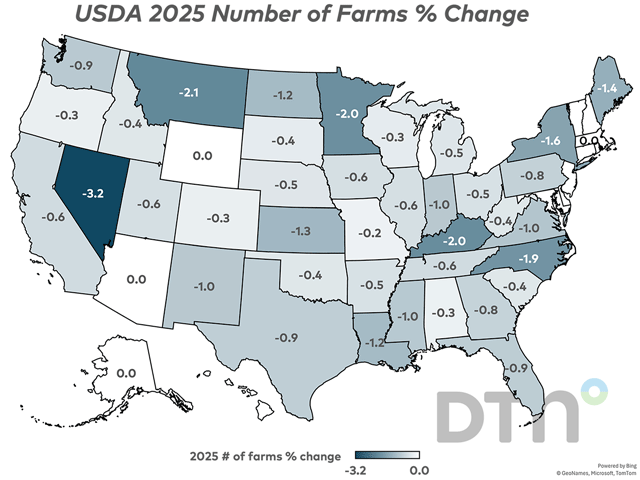An Urban's Rural View
The Battle for the GOP's Soul
As a businessman who loves bargains, Donald Trump must be overjoyed with all the free advice he's getting as president-elect.
In the days between the election and the inauguration of a new president, would-be advisers abound. They urge the adoption of this campaign promise, the discarding of that one. They push for executing particular campaign promises to the max -- or the min. They suggest which of the predecessor's policies should be continued and which axed.
All this happens with any incoming president. It's happening a lot with Trump because the battle for the soul of the Republican Party continues. Oversimplified, it's a contest between the conservatism of Ronald Reagan and what some call Big Government conservatism.
The key tenets of Reagan conservatism include tax cuts, small government, deregulation, free trade and a muscular foreign policy. Many Reagan conservatives are sympathetic to immigration, though strongly opposed to illegal immigration.
As the name implies, Big Government conservatism isn't about shrinking the government, but about making it work harder for American workers. The emphasis is on giving more Americans high-paying jobs and restoring the middle class.
Its proponents like closed borders; they see the dependence of industries like agriculture and technology on immigrants -- legal and illegal -- as simply lowering the wages of native-born Americans who would otherwise fill those jobs were the pay on offer more generous. Big-government conservatives are on board with tariffs for the same reason; they think they promote manufacturing jobs.
Like Reagan conservatives, the big-government conservatives tend to favor deregulation. Environmental regulation in particular puts energy-industry jobs at risk, in their view.
Perhaps unsurprisingly, they like the subsidies for new factories that the Democrats pushed through with the Chips Act and the infrastructure legislation. They'd continue that industrial policy, maybe even expand it.
P[L1] D[0x0] M[300x250] OOP[F] ADUNIT[] T[]
Big government doesn't mean big Pentagon; these conservatives are weary of expensive foreign wars. Domestic revival is their priority.
You might think Donald Trump has long since distanced himself from Reagan conservatism but two of the most important things he did in his first term -- tax cuts and deregulation -- came right out of the Reagan playbook. And he has charged Elon Musk with shrinking the government, though that's a challenge even Musk might not be up to.
From Big Government conservatism Trump has chosen protectionism, closed borders and foreign-policy restraint. Among the questions would-be advisers are trying to influence are how far to go with tariffs and closed borders and whether to continue the industrial-policy subsidies for new factories.
TARIFFS
The President-elect has promised big new tariffs -- as much as 20% on all incoming goods except Chinese imports, which he'd hit with a 60% tariff. He's getting a lot of advice to be more restrained.
Economists and businesses are warning him consumers will be hit with a new wave of inflation. Export industries like agriculture are relaying worries about trading-partner retaliation. Academics like Aaron Friedberg are telling him tariffs against China won't work unless they're coordinated with other China-fearing governments.(https://www.dtnpf.com/…)
Robert Lighthizer, the U.S. Trade Representative in Trump's first term who is said to be Trump's choice as trade "czar" in this one, is strongly pro-tariff. But he's also a pragmatist.
Higher tariffs are a certainty. How high and how broad is still unclear.
CLOSED BORDERS
The massive deportations of undocumented immigrants candidate Trump promised may be hard to pull off. There are millions of them, and many have been here for years and are deeply embedded in the economy. Rounding them up would require hiring a lot more border-control agents.
A Trump administration will certainly do more than its predecessor to stop the flow of new illegals. It will likely deport any who've been convicted of crimes or have been ordered deported by a judge. It's hard to believe the deportations will be massive, though. If they are, they will massively disrupt the economy.
INDUSTRIAL POLICY
Trump doesn't like the subsidies, but a lot of factories are under construction thanks to them. Pulling the plug on these factories would be a vote loser in the Congressional districts where they're being built, many in red states.
Could the big-government conservatives talk him into doing more? It doesn't seem likely. Keep in mind, though, J.D. Vance leans toward the big government side and he has a big fan in Donald Trump, Jr., whose views seem to carry weight with his father.
One of the worst pieces of advice the President-elect is getting is to set up a review board of retired generals and admirals to weed out serving three-star and four-star military officers. The idea no doubt appeals to Trump, who values loyalty above all else and was unhappy in his first term with officers who felt their loyalty was to the Constitution.
The president can and should fire an officer who is incompetent or refuses to obey lawful orders. But a loyalty test to a particular politician is a very bad idea. Officers should be promoted on the basis of merit, not politics.
Urban Lehner can be reached at urbanize@gmail.com
(c) Copyright 2024 DTN, LLC. All rights reserved.






Comments
To comment, please Log In or Join our Community .